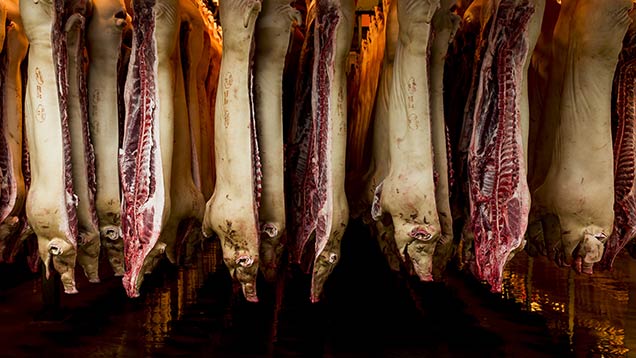EU spells out £3.5bn effect of Russia’s pigmeat ban
 © View Pictures/REX
© View Pictures/REX EU pig producers have lost €5bn (£3.5bn) since Russia closed its doors to imports of pork and pork by-products in January 2014, according to the European Livestock and Meat Trading Union (UEBVC).
In a letter to EU farm commissioner Phil Hogan, the union has urged the EU’s executive to step up efforts to make progress in “technical” talks with Moscow in a bid to ease the ban on exports of live pigs, fresh pork, pork fat and offal.
Russia closed its market to the EU pork industry at the start of 2014, following four isolated cases of African swine fever (ASF) in wild boar on the Lithuanian and Polish borders with Belarus.
See also: China bans Polish pork imports after ASF outbreak
However, it then introduced a wider ban on EU food imports in August 2014 in retaliation for EU sanctions imposed because of Moscow’s support for rebels in Ukraine.
But the UEBVC says Russia and a number of other key trading partners must now remove “unjustified” sanitary and phytosanitary barriers to trade, to reflect regional measures put in place to control any disease outbreaks.
In particular, it wants to see a revision of EU-Russia veterinary certificates for ASF-related commodities to allow for the resumption of at least 40% of exports.
It suggests that the Russian ban led to a loss of exports in 2014 of 800,000t of pigmeat, including 350,000t of fat and by-products.
EU health commissioner Vytenis Andriukaitis told last month’s farm council meeting that two letters had been sent to Russia requesting talks.
The issue is complicated by the fact Russia is also locked in fierce talks with Ukraine about the latter’s decision to enter into a free-trade agreement (FTA) with the EU on 1 January 2016.
According to press reports, Russia is firmly against the deal and is threatening sanctions against Ukraine unless it agrees to sharing information on customs transactions and adopting Russia’s phytosanitary rules.
The Ukrainian president, Petro Poroshenko, has told reporters he will not be blackmailed by Russia over the issue.
